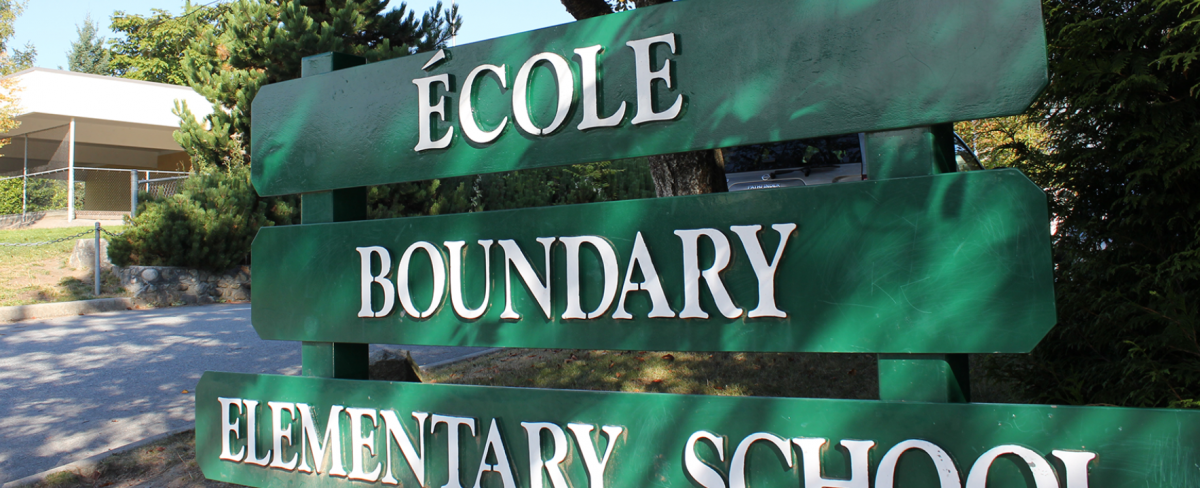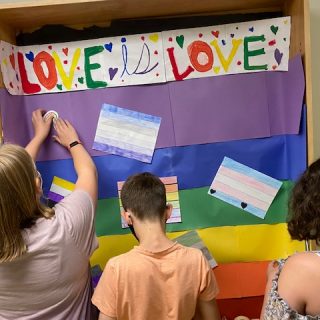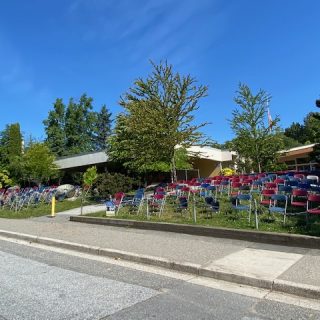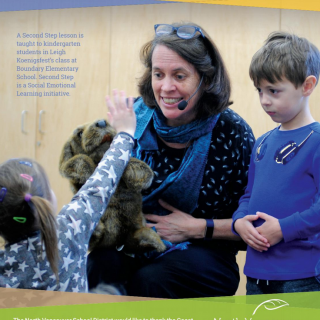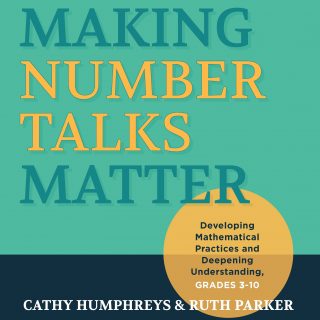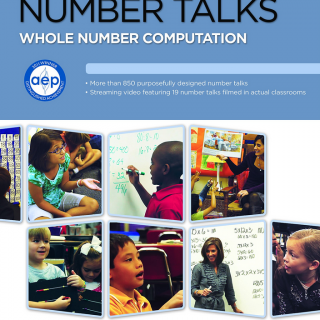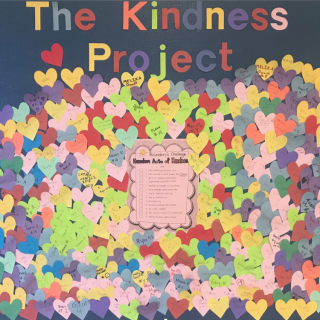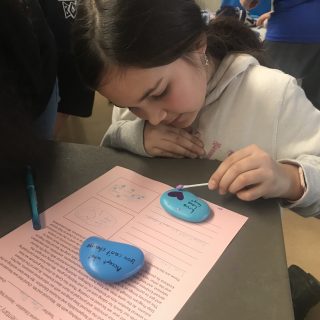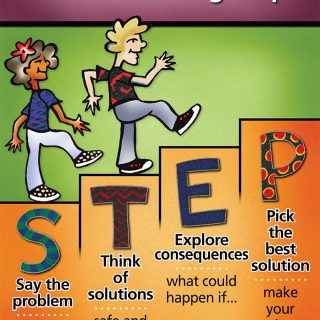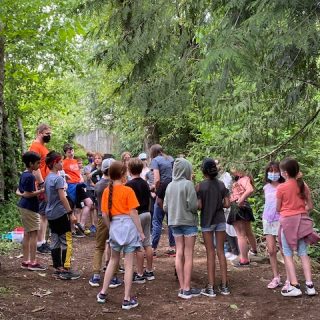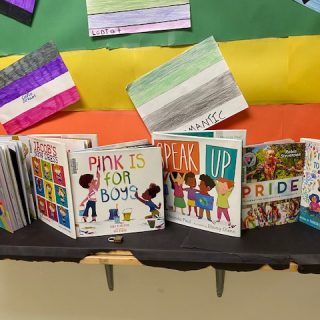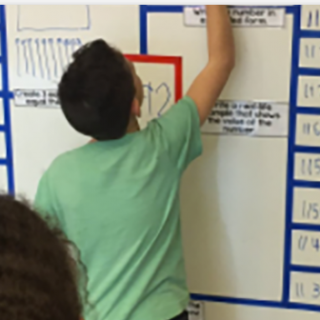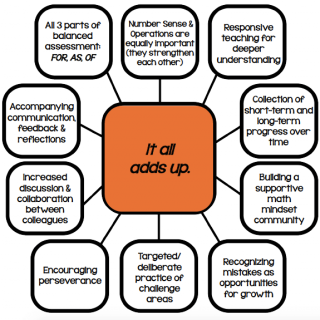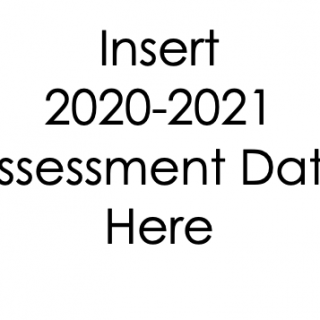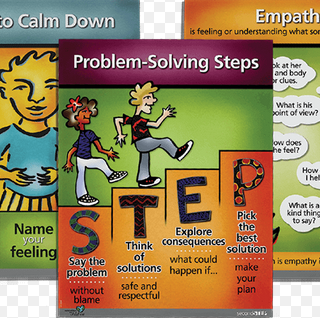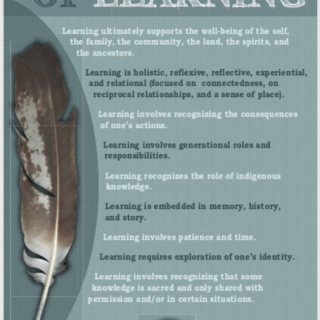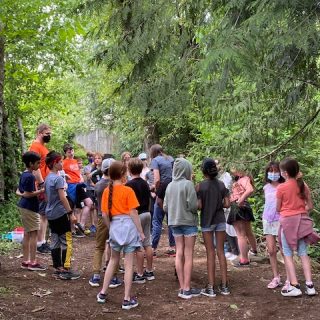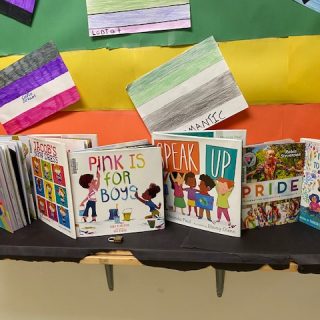Vision to Goal Setting
What is our Vision for Learning?
VISION
Ecole Boundary Elementary School is a vibrant learning community where learners feel a sense of safety, belonging, purpose, and responsibility. Students experience the care and attention needed to be challenged to meet their full potential socially, emotionally, intellectually, and physically.
At this time, all members of the Ecole Boundary Learning community are committed to and have focused instructional development in the area of mathematics. In addition, and decidedly foundational to cognitive growth, is the continued intentional work around personal and social responsibility, valuing diversity, and embedding Indigenous Worldviews into our daily routines and instruction.
Planning & Implementation
What is our Action Plan?
To foster a culture of communication among students, staff, and the community of Ecole Boundary around Math learning.
Objective 1.1 To increase the collaboration among staff by teaming together to identify strategies, resources, and professional development needs to improve student learning in mathematics.
- Schedule dedicated times to address math planning and professional development (staff meetings, collaboration days, professional development days).
- Apply for an FOS Collaborative Inquiry Grant to support the focused inquiry and skill development of research-based instructional strategies and routines.
- Develop intervention/strategies based on shared goals from the scope and sequence in math learning and results from student assessments.
We know that students learn more deeply and effectively when engagement is high. Student engagement requires ongoing attention to learner needs including a sense of curiosity, supporting persistence, recognizing levels of knowledge, and providing opportunities for success. With this in mind, the Staff at Ecole Boundary focused our search for Instructional strategies on those that offered the most inclusive flexibility to support the engagement of all learners.
To foster a culture of communication among students, staff, and the community of Ecole Boundary around social responsibility, diversity, and Indigenous Worldviews.
Objective 2.1: To increase student understanding of what it means to be personally and socially responsible by having the staff and parent community implement a consistent approach (common language and teaching strategies).
- Continue to implement a consistent school-wide approach to problem-solving (such as Second Step).
- Daily announcements, from Second Step, to support consistent language and classroom talking / learning points.
Objective 2.2: To increase the sense of community by collaborating to explore identity and honour diversity among students, staff, and the parent community.
- Schedule time for staff to collaborate and plan to implement strategies for differentiation.
- Provide opportunities for team-building activities to strengthen relationships and explore identity among staff and students.
- Share stories that honour diversity with our student, staff, and parent community.
Objective 2.3: To develop a sense of culture and collective responsibility among students, staff, and the parent community through the integration of Indigenous Worldviews.
- Schedule time for staff to collaborate and plan to integrate the First Peoples Principles of Learning and Indigenous Worldviews.
- Provide opportunities for District Indigenous Education Team and/or community resources to share with students and staff.
- Share stories and resources focused on Indigenous Worldviews with the parent community.
Monitor Evaluate & Adapt
What are our Indicators of Progress?
Math Learning
At Ecole Boundary School, Teachers decided that in order to make an impact on student engagement and learning in the area of Mathematics, we needed to make some Instructional changes in our practice. We had some learning to do….and we have continued with dedication on this path. Communicating with families around math concepts, learning, and practice is also strongly embedded our daily and weekly routines.
2020-2021
- Ten classroom teachers and both Learning Support Teachers continued to embed the Instructional Practice of “Number Talks” in both daily instruction and small group targeted instruction
- Four Collaborative Instructional workshops were held for teachers to examine the new SNAP assessment tool. This time included sessions to discuss, assess, evaluate, and align grade specific results
- One Professional Development Day was also used to explore, examine, summarize, and curate a valuable list of math websites to be used with students in interactive, problem solving lessons.
- Weekly “Math Musings” have been included in the Newsletter to parents, discussing Math instruction, learning, and real life application
- Weekly Math “Puzzle of the Week” was also included in the Newsletter to families. Many classrooms also discussed and made group attempts to work through solutions.
- Updated Inventory and new purchases of Math equipment, manipulatives, and resources
2018-2019 and 2019-2020
- Fall 2018. Math Scope and Sequence was developed to give structure and clarity to New Math Curriculum.
- Sept-March. Staff meetings begin with a math game, strategy, or Number Talk to share and practice with staff.
- Fall 2019. Math Committee came together to plan for our Fall Professional Development Day and to look at additional instructional resources. The committee consisted of teachers from both Primary and Intermediate as well as the Learning Support Teachers.
- Sept 20, 2019. All staff member participated in a School Based Professional Development Day with Nikki Lineham. Some comments from the day included “That was the most informative, engaging, FUN ProD ever” and “I know where to start making changes”.
- Oct 2019. Nikki Lineham recommended that if we add or change just one thing in our Instructional Practice, let it be the addition of “Number Talks”. Two Book Clubs were started. One Primary and one Intermediate. 14 Teachers and our Argyle FOS Leader participated.
- Nov 2019. The Boundary Math Committee wrote and presented a proposal for an Argyle FOS Collaborative Inquiry Grant. A Grant was awarded to cover the cost of all books.
- Oct 2019 – Mar 2020. Both book clubs met every few weeks to discuss strategies as we all began the daily math routine of offering a “Number Talk”. See comments in the Student Engagement Tab.
- Feb-Mar 2020. Math Committee shared Jennifer Katz’s Math Rubrics.
- Apr-June 2020. During the suspension of In-Class instruction and the movement to more on-line instruction “Number Talks” continued and became a preferred way to present, practice, and assess math thinking, strategies, and communication.
The end goal of creating a culture that values math learning requires the growth of student engagement and activating measures of success in both fluency and math problem solving.
2020-2021
- We shifted our assessment tool to the SNAP assessment and practice tool, developed by educators in School District 33, Chilliwack. Teachers report that it is much more efficient, targeted, and meaningful for assessment and instruction.
- Students are beginning to use the language of ‘Number Talks’ and the SNAP assessment in their math conversations
- Students who were previously ‘silent’ in their contribution to math lessons have grown in confidence and have developed the language they need to discuss thinking and the growth mindset needed to take risks
2016-2010
- Oct-Nov 2019. All teachers participating in the “Number Talks” Book Clubs designed and administered a self-assessment tool at the beginning of this journey.
- June 2020. Due to the suspension of In-class instruction and the partial return to class this Self-Assessment was not completed for the second time to measure growth.
At Ecole Boundary School we endeavour to communicate our intentional work and the progress that staff and students are making on this journey through:
2020-2021
2019-2020
- Weekly Boundary e-News bulletins that describe progress and celebrate successes.
- Through our website, Twitter and PAC managed social media.
- Updates at our BPAC meetings to share and exchange information and receive feedback.
- Math committee shares games and daily tasks with families to engage learners in math learning at home.
- Through daily morning announcements that are student led.
- Through working groups at our monthly staff meetings.
- NVSD 2020 Community Report featuring our Kindergarten Students engaging in the Second Step Curriculum.
- Data collection around math engagement. Student Self-Assessment information about the “Number Talks” strategy is currently being collected. We will continue with this process in the Fall of 2020.
At Ecole Boundary School we endeavour to communicate our intentional work and the progress that staff and students are making on this journey through:
2020-2021
2019-2020
- Weekly Boundary e-News bulletins that describe progress and celebrate successes.
- Through our website, Twitter and PAC managed social media.
- Updates at our BPAC meetings to share and exchange information and receive feedback.
- Math committee shares games and daily tasks with families to engage learners in math learning at home.
- Through daily morning announcements that are student led.
- Through working groups at our monthly staff meetings.
- NVSD 2020 Community Report featuring our Kindergarten Students engaging in the Second Step Curriculum.
- Data collection around math engagement. Student Self-Assessment information about the “Number Talks” strategy is currently being collected. We will continue with this process in the Fall of 2020.
Social Responsibility, Diversity, Indigenous World Views
At Ecole Boundary School all teachers and education assistants use the strategies and vocabulary learned through the Second Step Program. Visitors to our school comment on the kind and respectful students in every class.
2020-2021
- Ecole Boundary participated as a Pilot School with access to Online Seats for our upper intermediate students in the Second Step Program
- Students lead by example and are responsible citizens at Boundary.
- Students give daily announcements that include quotes from the Second Step program to begin discussions and reflections in class.
At Ecole Boundary School all teachers and education assistants use the strategies and vocabulary learned through the Second Step Program. Visitors to our school comment on the kind and respectful students in every class.
- Students lead by example and are responsible citizens at Boundary.
- Students give daily announcements that include quotes from the Second Step program to begin discussions and reflections in class.
To continue growth in this area:
2020-2021
- We continue to support our students in their skill building through Second Step Instruction.
- Ongoing work through School Based Resource Team and at staff meeting to share out knowledge and strategies that support our most complex learners
- An early shift in report writing to acknowledge the value of using gender neutral pronouns.
At Ecole Boundary we continue to offer and acknowledge that learning takes patience and time. We are all in different places with our knowledge, understanding, and practice as we seek to embed the First Peoples Principles in all our daily activities and interactions. We continue to seek the support of our District colleagues and we pass our learning on to our students and to the community.
2020-2021
- Fall 2020. Orange Shirt Day cohort projects
- Spring 2021. Friday Weaving with School District Indigenous Support Workers
- June 2021. Acknowledgement and Memorial Display of 215 Chairs and a renewed community commitment to learning about Canada’s Residential School System of atrocities and the ongoing, systemic inequities, and inter-generational trauma
- Embedding of the First Peoples Principles of Learning in all our interactions and learning
2010-2020
- Winter 2019. School Wide Metis Beading
- Sping 2019. Staff Blanket Excercise
- Spring 2019. Staff Drum Making
- Spring 2020. Michael Kusugak Author, story teller (post-poned)
- Indigenous Report (mid-year snapshot).
Communicating Progress
How do we Communicate our Progress?
HOW DO WE SHARE OUR PROGRESS?
At Ecole Boundary School we endeavour to communicate our intentional work and the progress that staff and students are making on this journey through:
2020-2021
- Weekly Boundary e-News bulletins that describe progress and celebrate successes and invite families to participate in the learning.
- Through our website
- Classroom teachers share games and daily learning tasks to engage learners and their families at home
- Use of MSTeams to support home / school communication of learning
- Student Led morning announcements include math conversations and Second Step quotes to ponder and discuss
- SNAP new assessment (borrowed from Chilliwack SD 33) results will be graphed and shared
- Student Led Indigenous Learning and acknowledgement – stories, photos, art
- Student Led identity projects of love and challenges to rigid binary systems of identity – photos and art
2019-2020
- Weekly Boundary e-News bulletins that describe progress and celebrate successes.
- Through our website, Twitter and PAC managed social media.
- Updates at our BPAC meetings to share and exchange information and receive feedback.
- Math committee shares games and daily tasks with families to engage learners in math learning at home.
- Through daily morning announcements that are student led.
- Through working groups at our monthly staff meetings.
- NVSD 2020 Community Report featuring our Kindergarten Students engaging in the Second Step Curriculum.
- Data collection around math engagement. Student Self-Assessment information about the “Number Talks” strategy is currently being collected. We will continue with this process in the Fall of 2020.
Latest Progress & Updates
As the 2020-2021 school year comes to a close we look back at all of the unexpected global, national, provincial, and local events that have shaken us and necessarily shifted our thinking, our learning, our socializing, and our teaching. With a renewed focus on the Social Emotional well-being of our school community, we have come through this year with newly developed resilience and a trusted reliance on the strength of our community. Our focus on Social Responsibility, Identity and Diversity, and Indigenous World Views prepared us and continue to keep us focused on learning the skills that students will need to help navigate uncertainties and challenges with skill, kindness, and an open mind.
As the 2019-2020 school year comes to a close we have all engaged in much unexpected learning, adapting, and shifting in the way we do things. Although these times were challenging for everyone, we were able to keep our School Plan priorities within our reach.
- Working in an online environment still allowed us to continue with our “Number Talks” in smaller MSTeams groups.
- Continued work in all areas of goal #2 became a priority as we stayed connected with all students and families and met them where they were at. This recognition of and adjustments to the variety of social, emotional, and intellectual needs of our families consolidated the value of this goal for our school.
What Is Next For 2021-2022?
- In the fall, the math committee will continue to use the SNAP. math assessment tool as it is more efficient and answers specific instructional and learning questions rather than offering general scores
- We will be re-visit Coast Salish drumming traditions
- We will revisit the plan to learn the Squamish National Anthem through our Music program
- In consultation with the current School Planning Committee we may consider revising or refreshing the current school goals and objectives to better fit the current learning needs at Ecole Boundary School.

